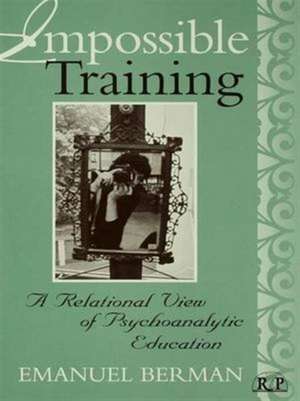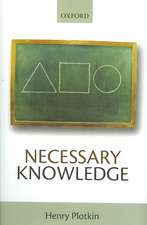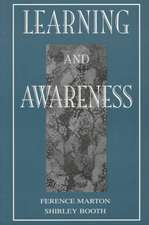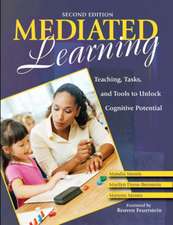Impossible Training: A Relational View of Psychoanalytic Education: Relational Perspectives Book Series
Autor Emanuel Bermanen Limba Engleză Hardback – 10 mai 2016
Berman is ideally suited to tackle the impossibility of psychoanalytic education. A graduate of two psychoanalytic institutes, one in Israel and one in America, he has devoted much of his professional life to psychoanalytic education and the organizational issues embedded in it. In Impossible Training, Berman describes the complex emotional and organizational dynamics of psychoanalytic training. Placing these issues within the context of major controversies in psychoanalytic history, he shows how generations of students have either idealized a "proper analytic identity," which evolves into a persecutory ideal, or rebelled against these standards. Are such persecuting and infantilizing trends inherent in analytic training, he asks, or can psychoanalytic education transcend them through changes in its structure and rules?
For Berman, the relational and intersubjective trends in contemporary psychoanalysis call for changes in analytic supervision, not least of which is heightened attentiveness to the many relationships that gain expression in the supervisory process. Envisioned in this relational manner, supervision can become a more personal experience, less guarded, and more conducive to the development of a fertile transitional space between supervisor and supervisee. Anchoring his consideration of the present in the controversies of the past, Berman concludes by considering the mission of psychoanalytic educators today: to provide trainees with the resources to cope creatively with the as yet unknown challenges of tomorrow.
Din seria Relational Perspectives Book Series
- 5%
 Preț: 288.36 lei
Preț: 288.36 lei - 5%
 Preț: 227.31 lei
Preț: 227.31 lei - 5%
 Preț: 248.39 lei
Preț: 248.39 lei - 5%
 Preț: 316.44 lei
Preț: 316.44 lei - 5%
 Preț: 309.04 lei
Preț: 309.04 lei -
 Preț: 266.64 lei
Preț: 266.64 lei -
 Preț: 229.70 lei
Preț: 229.70 lei - 5%
 Preț: 231.83 lei
Preț: 231.83 lei - 5%
 Preț: 267.45 lei
Preț: 267.45 lei - 5%
 Preț: 301.77 lei
Preț: 301.77 lei - 5%
 Preț: 273.23 lei
Preț: 273.23 lei - 5%
 Preț: 331.65 lei
Preț: 331.65 lei - 5%
 Preț: 189.76 lei
Preț: 189.76 lei -
 Preț: 273.84 lei
Preț: 273.84 lei - 5%
 Preț: 289.39 lei
Preț: 289.39 lei - 5%
 Preț: 231.83 lei
Preț: 231.83 lei - 5%
 Preț: 940.25 lei
Preț: 940.25 lei - 5%
 Preț: 232.77 lei
Preț: 232.77 lei - 5%
 Preț: 275.63 lei
Preț: 275.63 lei -
 Preț: 213.39 lei
Preț: 213.39 lei - 5%
 Preț: 274.21 lei
Preț: 274.21 lei - 5%
 Preț: 233.27 lei
Preț: 233.27 lei - 5%
 Preț: 315.51 lei
Preț: 315.51 lei - 5%
 Preț: 287.16 lei
Preț: 287.16 lei - 5%
 Preț: 219.18 lei
Preț: 219.18 lei -
 Preț: 371.53 lei
Preț: 371.53 lei - 5%
 Preț: 253.45 lei
Preț: 253.45 lei - 5%
 Preț: 183.34 lei
Preț: 183.34 lei - 5%
 Preț: 318.23 lei
Preț: 318.23 lei - 5%
 Preț: 266.90 lei
Preț: 266.90 lei - 5%
 Preț: 274.82 lei
Preț: 274.82 lei - 5%
 Preț: 346.04 lei
Preț: 346.04 lei - 5%
 Preț: 219.50 lei
Preț: 219.50 lei - 5%
 Preț: 231.91 lei
Preț: 231.91 lei - 5%
 Preț: 324.12 lei
Preț: 324.12 lei - 5%
 Preț: 401.89 lei
Preț: 401.89 lei - 5%
 Preț: 332.28 lei
Preț: 332.28 lei - 5%
 Preț: 534.99 lei
Preț: 534.99 lei - 5%
 Preț: 323.32 lei
Preț: 323.32 lei -
 Preț: 336.72 lei
Preț: 336.72 lei - 5%
 Preț: 416.67 lei
Preț: 416.67 lei - 5%
 Preț: 425.09 lei
Preț: 425.09 lei - 5%
 Preț: 456.44 lei
Preț: 456.44 lei - 5%
 Preț: 464.96 lei
Preț: 464.96 lei - 5%
 Preț: 382.83 lei
Preț: 382.83 lei
Preț: 813.45 lei
Preț vechi: 1069.81 lei
-24% Nou
Puncte Express: 1220
Preț estimativ în valută:
155.65€ • 163.10$ • 128.68£
155.65€ • 163.10$ • 128.68£
Carte tipărită la comandă
Livrare economică 11-25 aprilie
Preluare comenzi: 021 569.72.76
Specificații
ISBN-13: 9781138140134
ISBN-10: 1138140139
Pagini: 292
Dimensiuni: 152 x 229 mm
Greutate: 0.45 kg
Ediția:1
Editura: Taylor & Francis
Colecția Routledge
Seria Relational Perspectives Book Series
Locul publicării:Oxford, United Kingdom
ISBN-10: 1138140139
Pagini: 292
Dimensiuni: 152 x 229 mm
Greutate: 0.45 kg
Ediția:1
Editura: Taylor & Francis
Colecția Routledge
Seria Relational Perspectives Book Series
Locul publicării:Oxford, United Kingdom
Public țintă
Professional and Professional Practice & DevelopmentCuprins
Freud and Ferenczi: Their Generative Dyad as a Springboard for a Relational View of Treatment and Training. The Klein-Winnicott Relationship and the Debate on Inner and Outer Reality. Psychoanalytic Training and the Utopian Fantasy of the New Person. Detoxifying the Toxic Effects of Psychoanalytic Training: A Case Study. The Trainee's Personal Analysis and Its Dilemmas. Psychoanalytic Supervision: The Intersubjective Turn. Training for the Future.
Notă biografică
Emanuel Berman, Ph.D., is head of the Postgraduate Psychotherapy Program at the University of Haifa, Israel. His interests include the history and teaching of psychoanalytic theory as well as the psychoanalytic study of literature and film.
Recenzii
"This book is an important contribution to the growing literature of the critique of psychoanalytic education...it certainly enriches the analysis and instruments for change for psychoanalytic institutes at this time. This should be a volume of great interest to all psychoanalysts, particularly those involved in psychoanalytic education as faculty or students, and those involved in the administration of societies and institutes, in whose hands rests the ultimate responsibility for dealing with the urgent problems of psychoanalytic education that Berman highlights. It is absolutely indispensable reading for anyone involved in psychoanalytic supervision..."
- Otto Kernberg, M.D., JAPA
"There can be little doubt that psychoanalytic education is in a state of crisis. Creative solutions are urgently needed, and Emanuel Berman's new volume has answers the call. With painstaking scholarship and a contemporary perspective that is historically informed, Berman delivers a penetrating analysis of the daunting challenges in psychoanalytic training and a set of suggestions that demand our attention. I strongly recommend this book to psychoanalytic educators and candidates alike."
- Glen O. Gabbard, M.D., Brown Foundation Chair of Psychoanalysis
"Emanuel Berman's Impossible Training is a wise book. While he stresses the basic mutuality and joint vulnerability of the participants in both analysis and supervision, he also acknowledges the unavoidable asymmetry and inequality in these relationships. He advocates no universal methods but provides vivid clinical material to suggest multiple possible approaches to training and analytic work. His stance is humanistic. The writing is fresh and alive. All psychoanalytic educators and students will enjoy reading this book and will learn from it."
- Judy L. Kantrowitz, Ph.D., Author, The Patient's Impact on the Analyst (Analytic Press, 1996)
"A tour de force! This illuminating, clearly reasoned, and insightful exposition should be essential reading for all concerned with the central conflicts and dilemmas in psychoanalytic training today. With richly detailed illustrations of training tensions from his institute in Israel as well as from his clinical work, Dr. Berman provides a vital background to, and a novel understanding of, the inherent difficulties and imaginative possibilities in our quest to reform our own institutions. Though subtitled a relational view," Impossible Training has an import that far transcends any specific theoretical position. Berman's is an eloquent, humane, and ultimately hopeful plea against elitism and 'abuse of professional power' and for the 'generative' potential in grappling with our training challenges."
- Evelyne Albrect Schwaber, M.D., Training and Supervising Analyst, Psychoanalytic Institute of New England
"To my mind, Berman's finest chapters are those devoted to the special complexities of a relational understanding of training analysis and supervision. Here we see the beauty of an understanding that can look simultaneously at the two individuals and at the dyad in the process of analysis. Berman shows his ability to penetrate the depth of shifting fantasies, mutual influences…The book shows… that with open-mindedness and the willingness to accept one's own judgments as subjective… a vibrant and compassionate psychoanalytic training is indeed possible."
- Janet Hadda, International Journal of Psychoanalysis
"Berman asks us to take his title with a grain of salt, but it does reflect his experience that psychoanalytic training is a conflict-ridden, complex, difficult area, characterized by many emotional currents that are not acknowledged. He sharply illuminates these currents in order to make a constructive debate possible. A book to be embraced by all, not only by those involved with training."
- Marianne Horney Eckardt, American Journal of Psychoanalysis
"Berman's focus on 'detoxifying' psychoanalytic training and training relationships circulates throughout, bringing the book its life.…Eliminating some of the toxic aspects of training may also provide an antidote to some problems that threaten the viability of psychoanalysis as lasting profession."
- Jennifer McCarroll, Psychoanalytic Dialogues
"Berman raises a great many salient questions about analytic training…He points out how the idealization of so-called correct analytic technique and the elevation of the training analyst who exemplifies its use has had stultifying effects on psychoanalytic education and innovation… A most interesting part of the book then follows, in which Berman delineates the Israeli Psychoanalytic Institute's recent struggle in challenging the Eitingon model."
- Daniel Jacobs, Psychoanalytic Quarterly
"One of the most interesting contributions of Berman's approach…is his contention that the development of psychoanalytic ideas stems, more often than not, from a relationship, a dialogue, even an opposition between persons involved in the psychoanalytic experience.…This book is a much-needed contribution to the contemporary debate about psychoanalytic training."
- Juan Tubert-Oklander, The Psychologist-Psychoanalyst
"Consistently, Berman practices what he preaches not only in the content of the essays but also in the structure of them. It is not a lecture by an analyst/educator 'who knows' but a conversation that you are invited into and quickly find yourself a part of.…I am glad to have had this conversation with Emanuel Berman, and I recommend it to anyone involved in psychoanalytic education."
- Victor P. Bonfilio, Psychoanalytic Dialogues
"Impossible Training is more than a book about psychoanalytic education, although it is certainly valuable for anyone involved in psychoanalytic training as an educator or student. Many readers will appreciate this book for its insightful view of contemporary problems in psychoanalytic education, and for its intelligent recommendations for reform. However, the real power of the book lies in the fact that Berman's ideas about psychoanalytic education are grounded in a thoughtful systematic view of psychoanalysis and psychoanalytic training. In fast-moving chapters, full of clinical examples and provocative ideas, Emanuel Berman assembles a coherent account, integrating contributions to psychoanalytic theory, history, epistemology, methodology, and clinical theory with a study of psychoanalytic institutions and training. His stance is relational in the broad sense of the word - he adds a relational point of view to his overall examination of psychoanalytic theory, rather than rewriting or erasing pre-existing models. This is a rich, well-written work, both scholarly and easy to read. Because the author condenses many intersecting ideas into a relatively small number of pages, it is well worth reading twice."
- Charles P. Fisher, M.D., in Journal of the Northern California Society of Psychoanalytic Psychology, 12.2, 2006
"Berman goes to greater lengths to show that the concept of the relationship between analyst and analysand has been an important consideration for theorists since the beginning of analytical history. This book is intelligent, kind-spirited, and forward-thinking."
—International Journal of Psychoanalysis
"This book is a rich, well-written work, both scholarly and easy to read. Because the author condenses many intersecting ideas into a relatively small number of pages, it is well worth reading twice."
—fort da - Journal of the NCSPP
"In this fascinating book, Berman approaches the question of psycholanalytic training from the relational perspective, this being a subject in which the author has an ample experience....this book is a much need contribution to the contemporary debate about psychoanalytic training, and an extremely valuable reflection..."
—Division 39 - APA
- Otto Kernberg, M.D., JAPA
"There can be little doubt that psychoanalytic education is in a state of crisis. Creative solutions are urgently needed, and Emanuel Berman's new volume has answers the call. With painstaking scholarship and a contemporary perspective that is historically informed, Berman delivers a penetrating analysis of the daunting challenges in psychoanalytic training and a set of suggestions that demand our attention. I strongly recommend this book to psychoanalytic educators and candidates alike."
- Glen O. Gabbard, M.D., Brown Foundation Chair of Psychoanalysis
"Emanuel Berman's Impossible Training is a wise book. While he stresses the basic mutuality and joint vulnerability of the participants in both analysis and supervision, he also acknowledges the unavoidable asymmetry and inequality in these relationships. He advocates no universal methods but provides vivid clinical material to suggest multiple possible approaches to training and analytic work. His stance is humanistic. The writing is fresh and alive. All psychoanalytic educators and students will enjoy reading this book and will learn from it."
- Judy L. Kantrowitz, Ph.D., Author, The Patient's Impact on the Analyst (Analytic Press, 1996)
"A tour de force! This illuminating, clearly reasoned, and insightful exposition should be essential reading for all concerned with the central conflicts and dilemmas in psychoanalytic training today. With richly detailed illustrations of training tensions from his institute in Israel as well as from his clinical work, Dr. Berman provides a vital background to, and a novel understanding of, the inherent difficulties and imaginative possibilities in our quest to reform our own institutions. Though subtitled a relational view," Impossible Training has an import that far transcends any specific theoretical position. Berman's is an eloquent, humane, and ultimately hopeful plea against elitism and 'abuse of professional power' and for the 'generative' potential in grappling with our training challenges."
- Evelyne Albrect Schwaber, M.D., Training and Supervising Analyst, Psychoanalytic Institute of New England
"To my mind, Berman's finest chapters are those devoted to the special complexities of a relational understanding of training analysis and supervision. Here we see the beauty of an understanding that can look simultaneously at the two individuals and at the dyad in the process of analysis. Berman shows his ability to penetrate the depth of shifting fantasies, mutual influences…The book shows… that with open-mindedness and the willingness to accept one's own judgments as subjective… a vibrant and compassionate psychoanalytic training is indeed possible."
- Janet Hadda, International Journal of Psychoanalysis
"Berman asks us to take his title with a grain of salt, but it does reflect his experience that psychoanalytic training is a conflict-ridden, complex, difficult area, characterized by many emotional currents that are not acknowledged. He sharply illuminates these currents in order to make a constructive debate possible. A book to be embraced by all, not only by those involved with training."
- Marianne Horney Eckardt, American Journal of Psychoanalysis
"Berman's focus on 'detoxifying' psychoanalytic training and training relationships circulates throughout, bringing the book its life.…Eliminating some of the toxic aspects of training may also provide an antidote to some problems that threaten the viability of psychoanalysis as lasting profession."
- Jennifer McCarroll, Psychoanalytic Dialogues
"Berman raises a great many salient questions about analytic training…He points out how the idealization of so-called correct analytic technique and the elevation of the training analyst who exemplifies its use has had stultifying effects on psychoanalytic education and innovation… A most interesting part of the book then follows, in which Berman delineates the Israeli Psychoanalytic Institute's recent struggle in challenging the Eitingon model."
- Daniel Jacobs, Psychoanalytic Quarterly
"One of the most interesting contributions of Berman's approach…is his contention that the development of psychoanalytic ideas stems, more often than not, from a relationship, a dialogue, even an opposition between persons involved in the psychoanalytic experience.…This book is a much-needed contribution to the contemporary debate about psychoanalytic training."
- Juan Tubert-Oklander, The Psychologist-Psychoanalyst
"Consistently, Berman practices what he preaches not only in the content of the essays but also in the structure of them. It is not a lecture by an analyst/educator 'who knows' but a conversation that you are invited into and quickly find yourself a part of.…I am glad to have had this conversation with Emanuel Berman, and I recommend it to anyone involved in psychoanalytic education."
- Victor P. Bonfilio, Psychoanalytic Dialogues
"Impossible Training is more than a book about psychoanalytic education, although it is certainly valuable for anyone involved in psychoanalytic training as an educator or student. Many readers will appreciate this book for its insightful view of contemporary problems in psychoanalytic education, and for its intelligent recommendations for reform. However, the real power of the book lies in the fact that Berman's ideas about psychoanalytic education are grounded in a thoughtful systematic view of psychoanalysis and psychoanalytic training. In fast-moving chapters, full of clinical examples and provocative ideas, Emanuel Berman assembles a coherent account, integrating contributions to psychoanalytic theory, history, epistemology, methodology, and clinical theory with a study of psychoanalytic institutions and training. His stance is relational in the broad sense of the word - he adds a relational point of view to his overall examination of psychoanalytic theory, rather than rewriting or erasing pre-existing models. This is a rich, well-written work, both scholarly and easy to read. Because the author condenses many intersecting ideas into a relatively small number of pages, it is well worth reading twice."
- Charles P. Fisher, M.D., in Journal of the Northern California Society of Psychoanalytic Psychology, 12.2, 2006
"Berman goes to greater lengths to show that the concept of the relationship between analyst and analysand has been an important consideration for theorists since the beginning of analytical history. This book is intelligent, kind-spirited, and forward-thinking."
—International Journal of Psychoanalysis
"This book is a rich, well-written work, both scholarly and easy to read. Because the author condenses many intersecting ideas into a relatively small number of pages, it is well worth reading twice."
—fort da - Journal of the NCSPP
"In this fascinating book, Berman approaches the question of psycholanalytic training from the relational perspective, this being a subject in which the author has an ample experience....this book is a much need contribution to the contemporary debate about psychoanalytic training, and an extremely valuable reflection..."
—Division 39 - APA
Descriere
In Impossible Training: A Relational View of Psychoanalytic Education, Emmanuel Berman describes the complex emotional and organizational dynamics of psychoanalytic training. Placing these issues within the context of major controversies in












